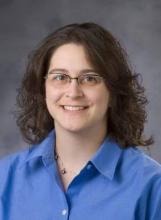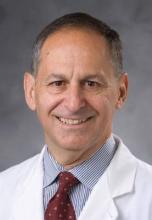Over the past few years, Dr. Lisa G. Criscione-Schreiber, director of Duke University’s rheumatology fellowship program in Durham, N.C., has noticed fewer young professionals who are interested in careers as physician-scientists. While plenty of applicants want to become clinical rheumatologists or perhaps to participate in clinical research, a dwindling number view the life of a physician-scientist as appealing.
“They’re scared,” Dr. Criscione-Schreiber said in an interview. “They look at their faculty members, and they see people who are killing themselves to get grants. They see people who are well-established faculty members still struggling to get themselves funded. They look at that as what their life is going to be like, and they say, ‘No thanks.’ ”
Funding is one of many barriers for rheumatologists who consider physician-scientist careers. A recent study in Arthritis Care & Research found that money and mentoring – or lack thereof – were the primary reasons that rheumatologists steered clear of careers in academic research. The study analyzed 430 responses from American College of Rheumatology (ACR) members from January 2014 to March 2014 about research participation, barriers and facilitators to research careers, reasons for leaving research careers and ways to support junior investigators. Clinical workload, insufficient protected time, lower salary, and lack of institutional research infrastructure also ranked as top barriers to physician-scientist careers, the study found. Facilitators to research careers on the other hand, included sufficient funding, protected research time, outstanding mentors, institutional support and funding for young investigators and personal traits such as hard work, resilience and initiative (Arthritis Care Res. 2015 [doi:10.1002/acr.22569]).
Investigators had expected that funding would rate high among obstacles for rheumatologist-scientists, according to the first author of the study, Dr. Alexis R. Ogdie-Beatty of the University of Pennsylvania, Philadelphia. Sharp declines in the National Institutes of Health’s budget have led to widespread decreases in the number of mentored awards for physician-scientists, including basic science and clinical science awards. NIH’s 2013 budget was 22% below its 2003 funding level, according to a 2014 NIH workforce report. For the rheumatology community, the funding constraints translated to a 30% decrease in individual investigator RO1 grants awarded to ACR members from 2010 to 2014, according to an editorial published with the Arthritis Care & Research study (Arthritis Care Res. 2015 Feb. 23 [doi:10.1002/acr.22570]).
“It’s difficult to get funding,” said Dr. Ogdie-Beatty, who is part of the ACR’s Young Investigators Committee. “Supporting your salary is really hard. Institutions have less money to support their young investigators.”
NIH’s low funding rate, combined with other challenges that physician-investigators face, is resulting in a shrinking pool of rheumatologists who pursue such careers, added Dr. David S. Pisetsky, a rheumatologist-immunologist, a basic science researcher, and professor of medicine at Duke University, Durham, N.C.
“Coupled with career stress, financial pressures, and difficulties in balancing family and personal issues with the tenuous nature of academics, the pursuit of an investigative career is perceived as too long and hard, especially as the funding situation appears to be persistent and systemwide,” Dr. Pisetsky said in an interview.
A more complex barrier to physician-scientist careers among rheumatologists is that of mentoring, Dr. Ogdie-Beatty said. Lack of mentorship and lack of access to key people within the field were the top obstacles reported by survey participants. Because rheumatology divisions are often small within academic medical centers, it may be challenging to locate a mentor, particularly within a specific research methodology, Dr. Ogdie-Beatty noted. At the same time, some mentees may have unrealistic expectations of mentors or trouble managing the relationship.
“Mentors are busy because they’re trying to support their own careers, so getting a fully accessible mentor may be difficult,” Dr. Ogdie-Beatty said. “The more time they spend with a mentee, the more time they’re not spending on the grants and the papers they need to get to support their own careers.”
Some survey participants also indicated that gender issues remain a barrier in pursuing a career in research and that a lack of flexibility in grants for time off to have children and the ability to work part time prevented their continuing research careers.
“The traditional structure of an academic career was never designed for women,” Dr. Criscione-Schreiber said. “A young women who finishes [her] fellowship and has a child or who may be planning to have a child in the next couple years is looking at this potential career of writing grants and doing research that’s time limited and time determined. [She is] thinking about child care and nannies and [wondering], ‘How can I make this work?’ I think a lot of people get scared off before they even start.”




